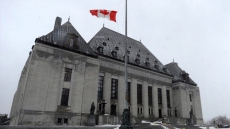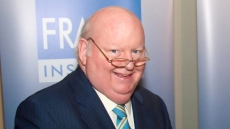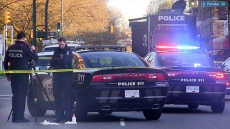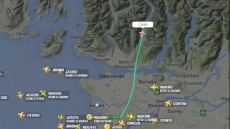OTTAWA — Canada will send 200 military trainers to Ukraine, joining the U.S. and Britain in an international effort to shore up the eastern European country's battered and bloodied combat forces.
Prime Minister Stephen Harper and Defence Minister Jason Kenney announced the long-anticipated move Tuesday at National Defence headquarters.
The troops will join American and British soldiers early this summer, and the mission will last until March 31, 2017.
Kenney says Canada's latest military contribution addresses a number of requests from the government of Ukraine, and is being provided to help the country in its efforts to maintain sovereignty, security and stability in the face of Russian aggression.
Most of the Canadian trainers are expected to be housed at an existing NATO training centre located in Yavoriv, in the western part of Ukraine, near the Polish border.
However, some instruction will also take place at the Ukrainian Ministry of Defence Demining Centre in Kamyanets-Podilsky, also in western Ukraine.
Kenney took pains to emphasize that the troops will be 1,300 kilometres from the embattled eastern portion of the country, where pro-Russian separatists were last week reportedly preparing for a spring offensive despite an uneasy ceasefire.
He also underlined that Canadian trainers will not accompany Ukrainian troops to the front.
"Let me be absolutely clear about that," Kenney said. "These Canadian Armed Forces personnel will not be going anywhere remotely close to the conflict zone in eastern Ukraine."
In fact, he said, the main training centre is virtually within site of the Polish border and "this is not a difficult place from which to extract them should circumstances become unpredictable."
The Canadians will offer Ukrainian troops their expertise in countering mines and improvised explosive devices, skills painfully learned during the five-year combat mission in Kandahar.
The new mission could also involve instruction on logistics and military policing, something former defence minister Rob Nicholson hinted at last winter when military planners visited the country to determine how best to help.
They will be training "recognized" Ukrainian army units and not any of the notorious irregular forces, some of whom have been described as far-right neo-fascist groups.
"We are not going to be in business of training ad-hoc militias," said Kenney, who added that they trust the government of President Petro Poroshenko to send them bona fide soldiers and national guardsmen.
The U.S. military has deployed 800 troops to train three — possibly four — battalions in western Ukraine. The British recently sent 75 soldiers to give instruction in command procedures, tactical intelligence and battlefield first aid.
Both Washington and Ottawa have been under pressure to ship lethal military aid to Poroshenko's government, which has been struggling to hold a shaky ceasefire together with rebels.
The Pentagon delayed the training program for Ukrainian soldiers last month to avoid giving the Kremlin an excuse to scrap the peace deal struck in February.
Russia could very well consider the deployment of U.S.-led trainers as a provocation at a time when it has rattled most of Europe with massive, snap military exercises along its borders involving tens of thousands of troops.
It strikes at the heart of the dilemma faced by Western leaders: how to stop Russian President Vladimir Putin's slow-motion dismemberment of Ukraine without provoking a major war.
Kenney says the training mission, which will cost about $13 million in the first year, is an important signal of deterrence and not a provocation.
"It is critically important the world, particularly NATO allies, send a strong signal to Vladimir Putin of deterrence and his aggression will not be rewarded, which is why we've been operating as part of Operation Reassurance with our NATO allies in eastern Europe," he said.
The training mission is separate from the deployment of Canadian troops, jets and a frigate, which are taking part in NATO exercises this year.





